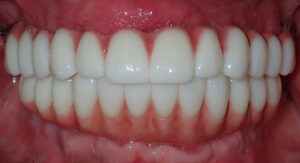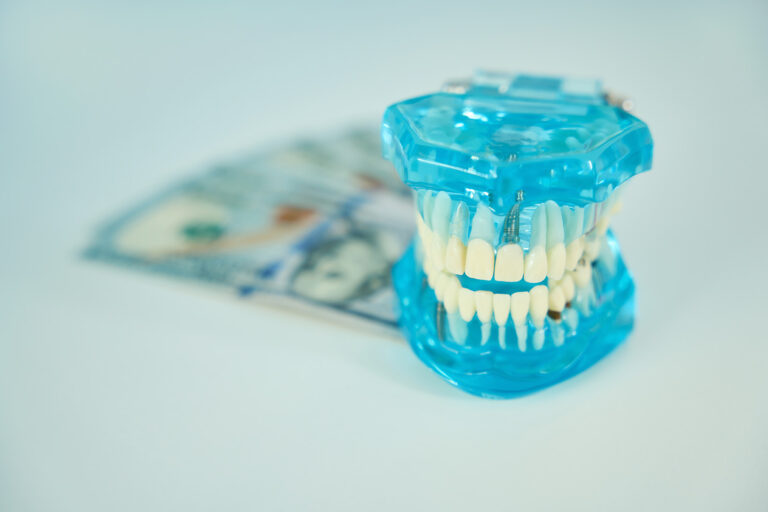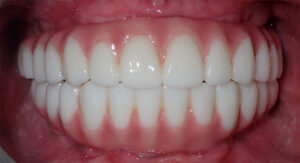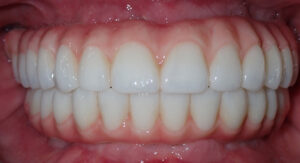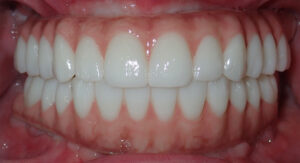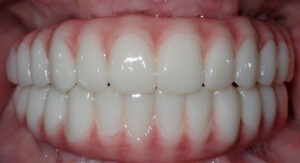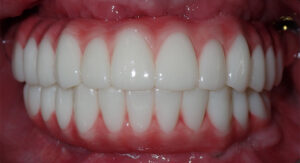How much you’ll invest in dental implants in 2025 depends on a mix of factors—from the number of implants and materials to pre-procedures and financing. Answering “What is the average cost of dental implants in 2025?” will help you budget wisely, compare options like All-on-4 versus single-tooth solutions, explore insurance and payment plans, and understand the long-term value of this permanent tooth replacement. This guide covers:
- Average and per-unit cost ranges for single, multiple, and full-mouth implants
- Key cost drivers, including bone grafting, sinus lifts, implant types, and anesthesia
- Breakdown of implant post, abutment, and crown expenses
- Insurance, HSA/FSA, and third-party financing strategies
- Benefits, longevity, and success rates that make implants a worthwhile investment
- Why Dr. Igor Kaplansky’s Gasport, Lockport, and Buffalo, NY practice is the local authority on implant dentistry
What Is the Average Cost of Dental Implants in 2025?
Dental implants represent a medical procedure for permanent tooth replacement that enhances chewing function and smile aesthetics. In 2025, typical price ranges reflect device costs, surgical placement, and restoration components. Understanding average costs helps you plan and compare treatment options.
Entity | Attribute | Value |
Single Dental Implant | Average Cost Range | $3,000 – $7,000 |
Multiple Dental Implants | Average Cost Range | $5,500 – $12,000 |
Full-Mouth Dental Implants | Average Cost Range | $23,000 – $31,000 |
These ranges vary by complexity, additional procedures, and location.
Average Cost of Dental Implants
In 2025, the cost of dental implants can range from $3,000 to $7,000 for a single implant, $5,500 to $12,000 for multiple implants, and $23,000 to $31,000 for full-mouth implants [10]. These costs are influenced by factors such as the number of implants needed, pre-implant procedures, and the materials used.
[Daytona Beach Dental Implants], Factors That Influence Dental Implant Costs (2025)
This source provides specific cost ranges for different types of dental implant procedures, which directly supports the article’s discussion of average costs.
Next, we explore how each implant option breaks down in detail.
How Much Does a Single Dental Implant Cost?
A single dental implant typically costs between $3,000 and $7,000, covering the implant post, abutment, and surgical placement.
Key cost components include:
- The implant device (titanium or zirconia screw) and surgical placement
- A custom abutment that connects the post to the crown
- A high-quality crown to restore function and aesthetics
Breaking down each element reveals where your investment goes and prepares you to compare multi-unit and full-arch solutions.
What Are the Costs for Full Mouth Dental Implants?
Full-mouth dental implants range from $23,000 to $31,000 for fixed all-arch solutions and $8,000 to $13,500 for implant-supported dentures.
Two main approaches:
- All-on-4/All-on-6 fixed archoffers a permanent prosthesis on four to six implants.
- Implant-supported removable denturesdeliver stability at a lower upfront cost.
Choosing between fixed and removable arches balances budget and lifestyle preferences while delivering superior chewing efficiency and confidence.
How Do Multiple Dental Implants Affect Total Cost?
Total cost for multiple implants builds on the per-unit rate but often includes savings on surgery and restoration for additional posts.
- Each additional implant beyond one may cost $1,800–$3,500.
- Bundled surgical fees can reduce per-implant placement costs.
- Grouped prosthetic fabrication (crowns or bridges) can lower individual restoration expenses.
Understanding bundled pricing versus standalone implants ensures you secure the best value for multi-tooth replacements.
What Factors Influence the Cost of Dental Implants?
Dental implant cost is influenced by procedure complexity, anatomy, pre-treatments, materials, and provider expertise. Each factor adds specific value to treatment success and longevity.
How Does the Number of Implants Impact Pricing?
The quantity of implants directly scales surgical time, materials, and restoration needs.
- Single implantinvolves one surgical site, one post, one crown.
- Multiple implantsshare a surgical setup, reducing incremental time and anesthesia.
- Full-arch casesuse guided surgery and prosthesis fabrication, offering per-unit cost efficiencies.
Higher implant counts can unlock economies of scale in procedure and lab fees while addressing more extensive tooth loss.
What Are the Costs and Necessity of Pre-Implant Procedures?
Pre-implant procedures prepare your jawbone and soft tissue for successful osseointegration. Necessary steps may include:
- Bone grafting to rebuild the deficient jawbone
- Sinus lift to elevate the sinus floor for upper-arch implants
- Tooth extractions to remove non-restorable teeth
These preparatory treatments ensure stable foundations, directly impacting implant success and long-term value.
How Much Does Bone Grafting Cost for Dental Implants?
Bone grafting typically ranges from $400 to $3,000, depending on graft type and defect size. Autogenous grafts and block grafts cost more but provide superior bone volume for implant support.
What Is the Price of a Sinus Lift Procedure?
A sinus lift costs between $1,500 and $4,000 when performed alongside implant placement. This augmentation raises the sinus membrane to allow implants in the upper jaw where bone height is limited.
How Do Tooth Extractions Affect Implant Costs?
Tooth removal prior to implant placement adds $150–$650 per extraction. Complex surgical extractions or impacted teeth may incur higher fees but clear pathology for a healthy implant site.
How Do Implant Types and Materials Affect Price?
Implant design and composition influence manufacturing cost and clinical application:
Entity | Attribute | Value |
Endosteal Implant | Typical Cost | $3,000 – $5,500 per implant |
Subperiosteal Implant | Typical Cost | $3,500 – $6,500 per implant |
Zygomatic Implant | Typical Cost | $10,000 – $15,000 per implant |
Titanium Material | Durability | High biocompatibility, lower cost |
Zirconia Material | Aesthetic Appeal | Metal-free, higher cost |
Endosteal (root-form) implants are the gold standard. Subperiosteal suit cases with insufficient jawbone, while zygomatic anchor in cheekbone for severe bone loss.
What Are the Cost Implications of Anesthesia and Sedation Options?
Anesthesia choices range from local numbing to IV sedation or general anesthesia:
- Local anesthesia: $50–$250
- IV sedation: $600–$1,200
- General anesthesia: $1,000–$3,000
Selecting the right sedation level enhances comfort and may increase overall investment in your care experience.
How Does Location and Dentist Expertise Influence Cost?
Geographic markets and clinician credentials shape fee schedules. In Gasport, Lockport, and Buffalo, NY:
- General dentists may charge $3,000–$5,000 per implant.
- Board-certified implantologists often invest in advanced technology, charging $4,000–$7,000 per implant.
What Are the Individual Components of Dental Implant Costs?
Breaking implant treatment into post, abutment, and crown clarifies where fees occur and how choices affect budget.
How Much Does the Implant Post Cost?
The implant post (titanium or zirconia screw) costs $1,000–$2,500. This core device anchors into the jawbone and initiates osseointegration.
What Is the Cost of the Abutment?
A custom abutment ranges from $300 to $800. It serves as the connector between the implant post and the final crown or prosthesis.
How Much Does a Dental Crown Add to the Total Cost?
A high-quality implant crown costs $800–$3,000 based on material (porcelain, zirconia) and lab craftsmanship. Premium restorations boost longevity and natural appearance.
How Can You Finance Dental Implants and What Insurance Options Are Available?
Understanding payment solutions and coverage options reduces financial barriers to implant dentistry.
Does Dental Insurance Cover Dental Implants?
Most dental plans treat implants as a cosmetic or supplemental benefit and cap coverage at 50% or $1,500–$2,000. Policies vary, so confirm implant and component coverage levels before treatment.
How Can Health Savings Accounts (HSAs) and Flexible Spending Accounts (FSAs) Help?
HSAs and FSAs allow pre-tax contributions to cover implants, abutments, crowns, and preparatory procedures. Using tax-advantaged funds reduces net out-of-pocket costs.
What Payment Plans and Third-Party Financing Options Exist?
CareCredit and similar medical credit cards offer interest-free or low-interest installment plans. Loan programs tailored to dental care let you spread costs over 12–60 months at competitive rates.
Why Are Dental Implants a Worthwhile Long-Term Investment?
Dental implants improve function, health, and confidence, often lasting decades when placed and restored properly.
How Do Dental Implants Improve Quality of Life and Oral Health?
Implants support jawbone preservation, prevent facial collapse, restore chewing efficiency, and deliver a stable, natural-looking smile that enhances nutrition and self-esteem.
What Is the Typical Longevity and Success Rate of Dental Implants?
Clinical studies report a 95%–98% success rate over 10+ years. With proper care, implants can last 20 years or more, making them cost-effective compared to bridges or dentures.
Why Choose Dr. Kaplansky for Your Dental Implants in Gasport, Lockport, and Buffalo NY?
Dr. Igor Kaplansky is a board-certified implantologist and fellow of the American Academy of Implant Dentistry who combines surgical skill with personalized patient care.
What Makes Dr. Kaplansky’s Dental Implant Services Unique?
His practice leverages 3D imaging, guided implant placement, and high-precision prosthetics to enhance outcomes, reduce recovery time, and deliver predictable, aesthetic results. To explore comprehensive implant solutions, visitDental Implants – Dr. Kaplansky.
What Do Patients Say About Their Implant Experience?
Patients praise Dr. Kaplansky’s clear communication, gentle approach, and life-changing results—highlighting restored confidence, comfort, and long-term oral health.
